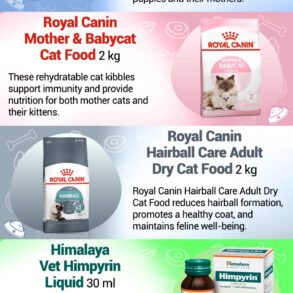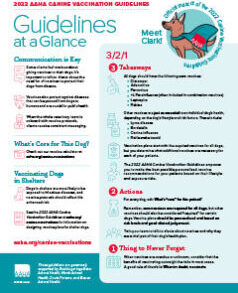
Spring is a season of renewal—flowers bloom, trees come back to life, and the warmer weather invites us to spend more time outdoors. But as pleasant as the spring season can be, it also marks the return of some unwelcome guests: parasites. Fleas, ticks, and heartworms thrive in the warmer months, making spring the perfect time to focus on parasite prevention for your pets.
Protecting your furry friends from parasites is essential not only for their comfort but also for their overall health. Here’s everything you need to know about safeguarding your pets from these pesky intruders as the temperatures rise.
Why is Parasite Prevention Important?
Parasites can cause a range of health issues for your pets, from mild discomfort to life-threatening diseases. Fleas can lead to allergic reactions, tapeworm infestations, and intense itching that can cause skin infections. Ticks can transmit dangerous diseases like Lyme disease and anaplasmosis. Heartworms spread by mosquitoes, can cause severe damage to your pet’s heart and lungs and may even be fatal if not treated.
By focusing on prevention, you’re saving your pet from unnecessary pain and discomfort, as well as reducing the risk of more serious health complications down the line.
Common Springtime Parasites and How to Prevent Them
Fleas
Fleas are one of the most common parasites, and they become more active as the weather warms up. A single flea can lay hundreds of eggs in your home, leading to a full-blown infestation in no time. Fleas feed on your pet’s blood, which can cause itching, hair loss, and even anemia in severe cases.
Prevention Tips:
- Use flea prevention treatments recommended by your veterinarian.
- Regularly groom your pet to check for signs of fleas, such as excessive scratching or flea dirt (tiny black specks).
- Vacuum your home frequently and wash your pet’s bedding in hot water to remove flea eggs and larvae.
Toronto Humane Society’s Public Veterinary Services offers many parasite products that treat and prevent fleas. If you’re unsure which product is right for your pet, our team can help guide you toward the best solution.
Ticks
Ticks thrive in grassy, wooded areas and can latch onto your pet during a springtime walk or hike. These parasites are notorious for spreading diseases like Lyme disease and anaplasmosis.
Prevention Tips:
- Use vet-recommended tick preventatives.
- After spending time outdoors, inspect your pet’s fur and skin for ticks, especially around their ears, neck, and underbelly.
- Keep your yard trimmed and free of tall grass or brush, as these are common tick habitats.
- Remember to check yourself for ticks as well
Heartworms
Heartworms are transmitted through mosquito bites, and while the infection is more common in dogs, cats can also be affected. Heartworm disease is serious and potentially fatal, as it targets the heart, lungs, and blood vessels. The sad reality is that heartworm disease often shows no early symptoms, making prevention crucial.
Prevention Tips:
- Administer heartworm preventatives, as recommended by your veterinarian.
- Avoid mosquito-heavy areas when possible, especially around dawn and dusk when mosquitoes are most active.
- Use mosquito repellent products that are safe for pets in high-risk areas.
Intestinal Parasites (Roundworms, Hookworms, and Whipworms)
Spring is also a good time to focus on preventing intestinal parasites, which are often contracted through contaminated soil, feces, or infected animals. These worms can cause gastrointestinal issues like vomiting, diarrhea, weight loss, and even nutritional deficiencies.
Prevention Tips:
- Ensure your pet is on a year-round deworming schedule, as recommended by your vet.
- Keep your pet’s environment clean by picking up feces promptly in your yard and avoiding areas where other animals may have relieved themselves.
- Regularly test your pet’s stool for parasites during routine vet check-ups.
Protect Your Pets Year-Round with Toronto Humane Society’s Pet Health Insurance
Toronto Humane Society offers Pet Health Insurance through Petline, including our Secure 4 plan, which features Preventive Care coverage. This plan includes comprehensive annual wellness services, such as routine exams, vaccinations, and parasite prevention, helping you keep your pet healthy all year long. Whether it’s routine care or an emergency, our pet insurance helps cover the costs, allowing you to focus on what matters most—your pet’s health. Click here for a free quote today.
This post was originally published on this site be sure to check out more of their content.







































